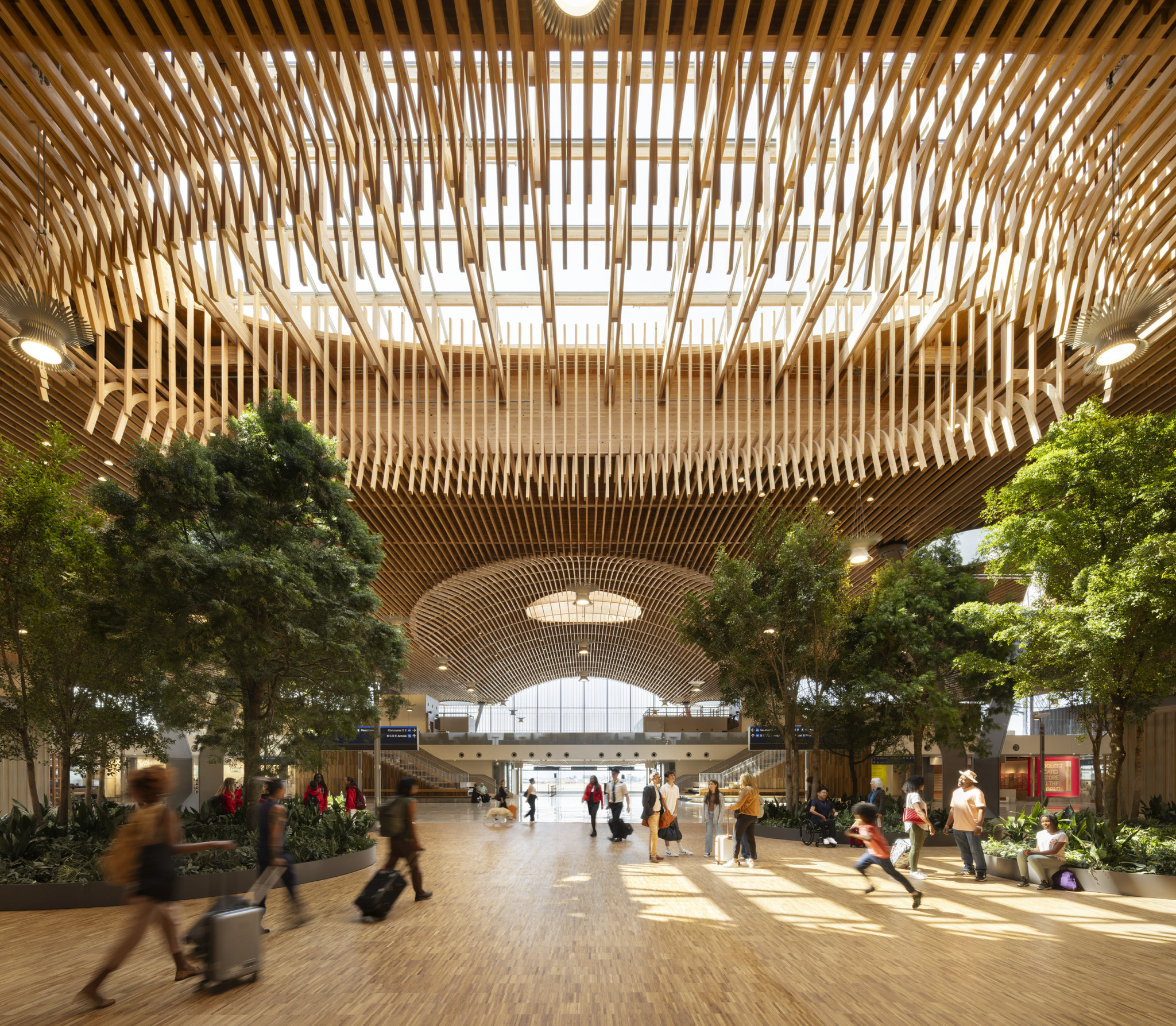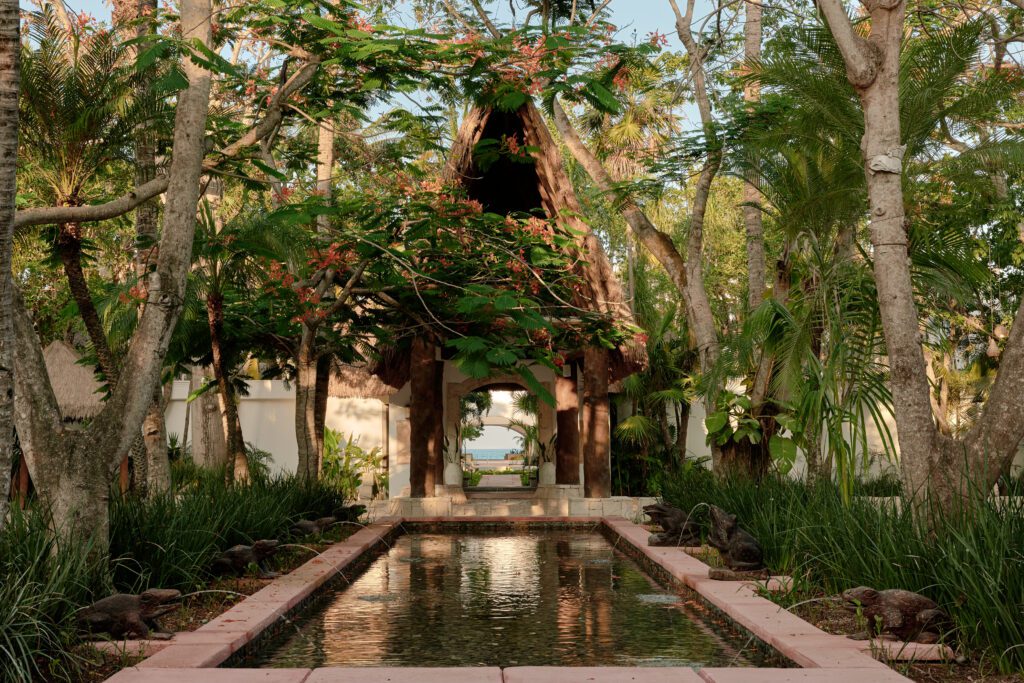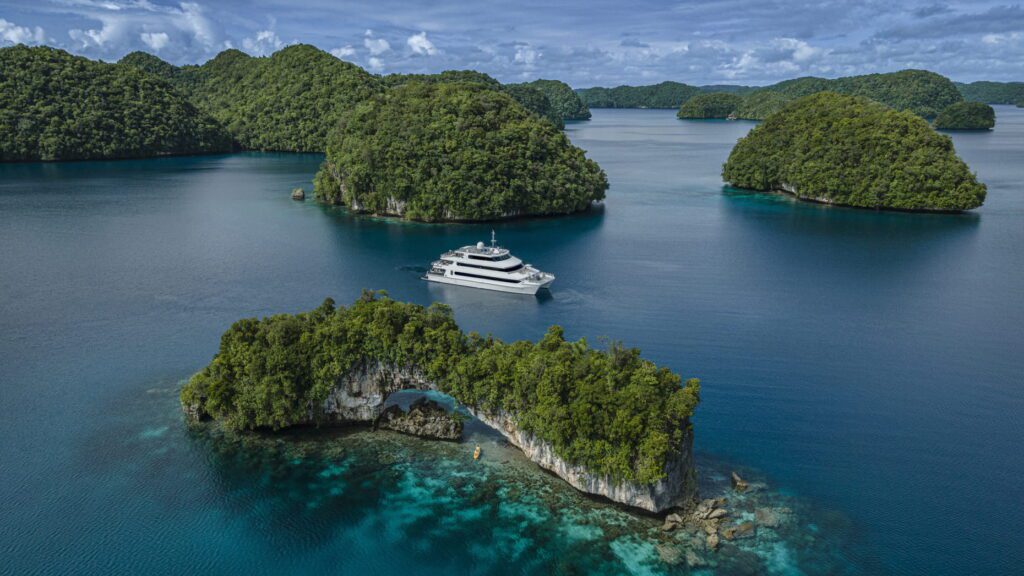The Biggest Innovators in Travel and Hospitality: Summer 2024

We’re back with another edition of the brands and properties that have caught my eye this season.
Yes, you’ll see my thoughts on the best hotels, best lounges and other luxury takes. But this isn’t about the uber-scaling and hyper-glitz of the post-Covid years.
The most interesting trends I’ve seen this year point to a return to normalcy. Too often, luxury has played to guests’ egos and, in its worst versions, become an empty reflection of monetary success. The best luxury is heartfelt and sincere. It is not the opulent spread, but rather the perfect ingredient cooked over a wood fire. It is the elegantly restored property with great bones and patina, rather than a rushed build with cheap veneers. Capital frequently tries to pull a fast one on consumers and I’m hoping it gets called out more.
My guess is we’ll see a surge in “post-luxury” consumers who prize this realness and depth, and move away from the mindset of “I’ll have the most expensive thing on the menu.” It’s the excess and crass behavior that some brands continue to run toward.
My list is inspired by those who build and execute with integrity and vision.
Best New Airport Terminal
Portland’s new main terminal facelift is nothing short of extraordinary. Designed by ZGF architects, it feels connected to nature and the soul of Portland. The team wanted it to feel more like a walk in an inspired park rather than a lifeless shopping mall.
The standout is the stunning wood roof, which also lends a beautiful acoustic hush to the environment. Little touches like loudspeakers being mounted at head level rather than booming from above are one of countless examples of the touch and detail they brought.
Hospitality Brand of the Year
I’m consistently impressed with Belmond – from CEO Dan Ruff to the thoughtful marketing and comms approach. I also think its brand strategy is smart in leaning into the halo of their train products and the idea of slow luxury.
I have a feeling Belmond will be a refuge for luxury consumers who have been burned by hyper-expansion and cynical price gouging. The Belmond team has strong core beliefs, and they are thinking about the long game and guest experience correctly. Read my longer column here.

Best Lounges
Air France has been upgrading its La Premiere product, both in the sky and on the ground. It unveiled three new private suites within the expanded 10,700-square-foot flagship lounge in Paris. The clientele for this product aren’t exactly price-sensitive and these products come at a cost. But as a result, Air France was able to really elevate the offerings. Suites are around 500 square feet, with outdoor space and butler service. It’s smart that they are offering this at an additional cost (around 800 euros), as it will allow them to preserve the exclusive feel of the entire experience.
Air France’s effort is somewhat similar to what PS is executing very well stateside with a recent launch in Atlanta. There is a salon concept, akin to a members’ lounge with direct transfers to the plane, as well as private suites.
An honorable mention must go to Louis Vuitton’s lounge concept in Doha. It is nestled outside of the Qatar Airways lounge in the new garden terminal and has some of the best culinary offerings and crispest service at Hamad.
Best Hotel
I was obsessed with the Auberge Bowie House in Fort Worth. It was a strong example of how the brand can stretch and expand, and still feel of a place. The brand’s creative director, Kemper Hyers, created an elevated, convivial space that frames the interesting convergences of the city. The bar and lobby area render the American West in crisp HD, without feeling contrived. (I saw an actual cowboy with spurs and a sidearm in the morning, and Jon Hamm holding court in salmon-colored trousers in the afternoon). A perfect hotel for a dynamic and growing city.
Best Under-the-Radar Brands
Teardrop hotels, a boutique brand in Sri Lanka, has been on my radar for a while, and I recently got to check out a few of the properties. It is a luxury brand that is not ostentatious: the hotels sit within historical structures, feel comfortable and properly lived in (in the best way), with cozy nooks, gardens, and libraries. It is a brand that will resonate with clientele who are sick of over-the-top ostentation but want a sincere reflection of a place, with warm service. A true standout.
I’ve also been paying attention to the utterly unique Norwegian hotel brand 62 Nord. The properties are family-owned and spread out throughout Norway. It is also highlighting interesting off-the-beaten-path areas of the country and doing so with inspired design and consideration of environmental impact. One to watch.
Best New First Class Product
Japan Airlines always has had an incredible first-class, but it stood out more for the service than the product itself. Now it has upgraded the actual seat, cabin design, and passenger experience on the A350. It has an incredible amount of privacy and personal space, a 43-inch screen, and incredible bedding. The only competition, at least until other airlines bring their new products online, is Emirates’ “game changer” product on the 777. True first class is not dead just yet.
Hotel with Gravitas
I’ve generally only experienced Rosewood in its urban properties, but the Little Dix Bay property in Virgin Gorda impressed on several levels.
One, it has historical gravitas (it was previously a Rock Resort) with pride of place. You can feel when a hotel knows what it is meant to be. Two, the renovation was tasteful and preserved the vibe of the property. The GM, Andreas Pade, and the team were polished, thoughtful, and anticipatory. It might just be the sharpest resort product in the Caribbean at the moment.
Smartest Approach to Conservation
Speaking of gravitas, I was also impressed with the depth of ocean conservation initiatives at Four Seasons Landaa in the Maldives. The Regional VP, Armando Kraenzlin, is a lifelong conservationist, a dive instructor, and the depth of his passion has radiated outward. The property has a marine conservation center to educate both adults and children, rehabilitates turtles that have been caught in nets or are otherwise unable to survive in the world, and is working to restore reefs that have been damaged by coral bleaching. Kraenzlin’s thought and approach to this conservation is also being ported to Four Seasons’ new project in Palau. I wrote more about that project here.


Sharpest Cultural Integrations
I’ve long argued that the most important task in marketing for high-end properties is elegantly placing the brand into culture with the right integrations, partnerships, and people. Marbella Club has been giving a masterclass on this approach for its 70th anniversary. Of particular note is its collaboration with Spanish brand Loewe (think summer greenhouses turned into perfumeries), as well as interesting soundscape meditations. The taste levels and curation is sky high.
Most Thoughtful Brand Re-boot
I’ve been paying attention to the evolution of Ritz Carlton, first with the Nomad property in New York, and most recently with its new opening in Portland. First, the city needed a luxury hotel of this caliber. And second, the brand did something that feels native and thoughtful to its surroundings. The bar tastefully mixes green foliage, timber, and local ingredients without feeling artificial, and service across the board was exceptionally polished.
Inspired Openings
I’ve been a longtime visitor to Oman, and have recently watched the luxury sector evolve from the OG properties like the Chedi. Mandarin’s recent opening should be a blueprint for the brand’s continued expansion. It is not a rinse-repeat like some of the other properties being locked and loaded in Muscat.
Rather, there is nuance and respect for Omani culture, from the tapestry and artwork in the room to the lobby design. Mandarin is a worldly brand, and by taking the time to respect the locale, it felt refreshingly well integrated. The hotel is also developing deep relationships with cultural organizations like the Royal Opera House and will be a thoughtful diplomat to help bridge travelers into more interesting experiences in Muscat.
Elsewhere in the region, I was inspired by the Lana’s debut in Dubai, run by GM Richard Alexander. Dorchester Collection pushed against the hyper-glam artifice of the region and created something elegant and modern, with a unique service culture. It honors the Emirati-London connection, and feels like a meaningful evolution of the brand.
Most Consistent Service Culture
Mountain resort service culture in the U.S. can often feel seasonal, transitory, and at times, lackluster. Stein Eriksen Lodge in Deer Valley had remarkably consistent service and warmth across the board. Again, it is a strong brand with a strong history, and their ability to get everyone on the same page and execute in a busy season stood out to me.
Trend That Needs to Happen
I’m finding hotels and hospitality groups are being too polite. Yes, the customer is always right, but guests are behaving badly: watching TikTok out loud in public spaces, dressing like slobs, and treating staff poorly. There needs to be a strong re-alignment of what is tolerated, and hospitality brands need to show more backbone.
A culture is what you tolerate over time, and the needle has been pushed too far in the wrong direction. I’d like to see more dress codes enforced, policing of sound in public areas, and a semblance of decorum to be restored for the benefit of all guests. Does this mean that everything has to turn into Downton Abbey or a Darien country club? Of course not. But hotel brands need to lean in a bit more than they are currently doing.
Inspired F&B
The new Four Seasons Doha at the Pearl is remarkably well executed under the leadership of GM Mehdi Zaanoun. It is a perfect counterbalance to the original Four Seasons property in the diplomatic quarter, focused on a more residential feel and longer stays. But what stood out to me is the superb F&B: It is hard for any hotel breakfast to surprise me, but the level of execution and detail was fantastic under the watch of Sebastian Braun. Their French Mediterranean, Southern Italian, and steakhouse concepts were all superb.
Best Word-of-Mouth and Intel
I’m hearing interesting things about the Hotel Hana, a new Japanese hotel in Paris; The Hotel de Couvent, a former convent in Nice; Al Moudira in Luxor; and Lily of the Valley in Saint-Tropez. Auric Road is a new brand to watch following its excellent property and execution in Big Sky with Lone Mountain Ranch (and the deep cut private bar Auric room).
The writer I follow to learn about the most thoughtful hospitality projects: Maria Shollenbarger from the FT. Read her. Mary Holland’s travel work in Monocle (and wherever she publishes) is also essential, along with Mark Ellwood on luxury at Bloomberg and Robb Report.
Destinations to Watch
I’m bullish on two locations. Now that Sri Lanka has done away with its pesky visa fees, I’m hoping more luxury visitors will discover the variety of offerings: from jungles and mountains, to plains and beaches. Brands to pay attention to: Resplendent Ceylon, particularly its Tea Trails properties, as well as the Teardrop. Both are strong diplomats for the country.
I am also absolutely obsessed with the country of Palau in Oceania, for its raw and remote beauty and its thoughtful approach to ocean conservation. I wrote about the Four Seasons project in a longer column here, but it is best to book a flight on EVA or Starlux through Taipei, and catch the connecting China Airlines flight and go see it for yourself.
Best Hoteliers
The hoteliers and leaders that stood out to me this half: Eugenio Pirri and Helen Smith, co-CEOs of Dorchester; Hassan Ali from Four Seasons Explorer; Victorio Gonzalez from Montage Big Sky; as well as the (unrelated) Eric Gonzalez from Rosewood BVI.
Also: Gene Sandoval of ZGF architects and co-mastermind of the Portland terminal, as well as Shan Kanagasingham, who is the hand behind the consistency and excellence as Auberge expands.
And I am sending Craig Reid, also from Auberge, best wishes for his retirement after an incredible hospitality career and sending Auberge’s incoming CEO, Christian Clerc, the best of luck in stewarding the brand.
See you for our next installment in January, and keep up with my columns here.
Related
Turkish Airlines and Qatar Airways Suspend Mogadishu Flights Following US…
Home » Airlines News of Qatar » Turkish Airlines and Qatar Airways Suspend Mogadishu Flights Following US Embassy Terror Alert, Raising Security Concerns at
Local tourism destinations grow fast
Men sit at the Doha Corniche backdropped by high buildings in Doha on March 3, 2025. Photo by KARIM JAAFAR / AFP DOHA: Local tourism destinations are g
Hajj, Umrah service: Qatar Airways introduces off-airport check-in for pilgrims
Image credit: Supplied Qatar Airways has introduced an off-airport check-in
IAG, Qatar Airways, Riyadh Air, Turkish Airlines, Lufthansa & more…
Turkish Airlines – a Corporate Partner of the FTE Digital, Innovation & Startup Hub – is charting a course to rank among the top 3 global airlines for












